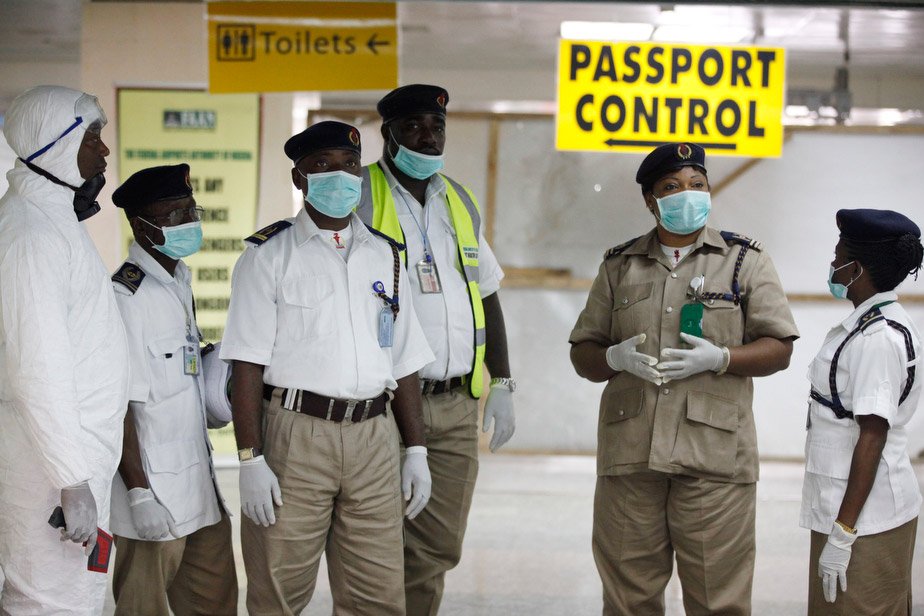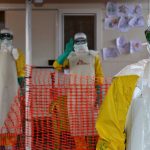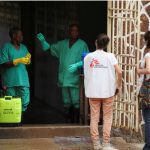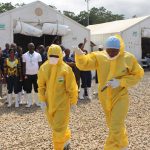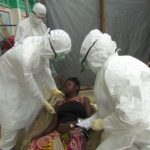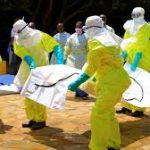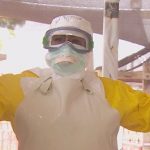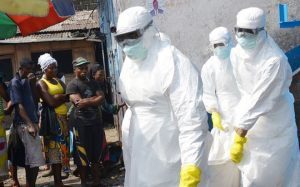 Three patients infected with the Ebola virus slipped out of an isolation ward at a hospital in Democratic Republic of Congo, health officials said, as medics raced to stop the deadly disease from spreading in the busy river port of Mbandaka.
Three patients infected with the Ebola virus slipped out of an isolation ward at a hospital in Democratic Republic of Congo, health officials said, as medics raced to stop the deadly disease from spreading in the busy river port of Mbandaka.
The cases represent a setback to costly efforts to contain the virus, including the use of an experimental vaccine, and show efforts to stem its spread can be hampered by age-old customs or scepticism about the threat it poses.
Two patients left the hospital in Mbandaka on Monday night with the help of family members, then headed to a church, the World Health Organization’s spokesman in Congo, Eugene Kabambi, told Reuters.
One died at home the next day and was buried with the help of medical charity Medecins Sans Frontieres (MSF). The other was sent back to hospital and died that night, Kabambi said.
Another patient who was close to being discharged left on Sunday evening but was later found, Kabambi said.
The WHO and MSF said they could not force patients to stay in hospital but hoped that growing awareness of the disease and its risks would convince people to follow medical advice.
“This is a hospital. It’s not a prison. We can’t lock everything,” Henry Gray, the head of the MSF mission in Mbandaka, told Reuters.
WHO spokesman Tarik Jasarevic said health workers had redoubled efforts to trace contacts with the patients. Health workers have drawn up a list of 628 people who have had contact with known cases who will need to be vaccinated.
“It is unfortunate but not unexpected,” he said. “It is normal for people to want the loved ones to be at home during what could be the last moments of life.”
“The next few weeks will really tell if this outbreak is going to expand to urban areas or if we’re going to be able to keep it under control,” WHO’s emergency response chief, Peter Salama, said at the U.N. body’s annual assembly. “We’re on the epidemiological knife edge of this response.”

